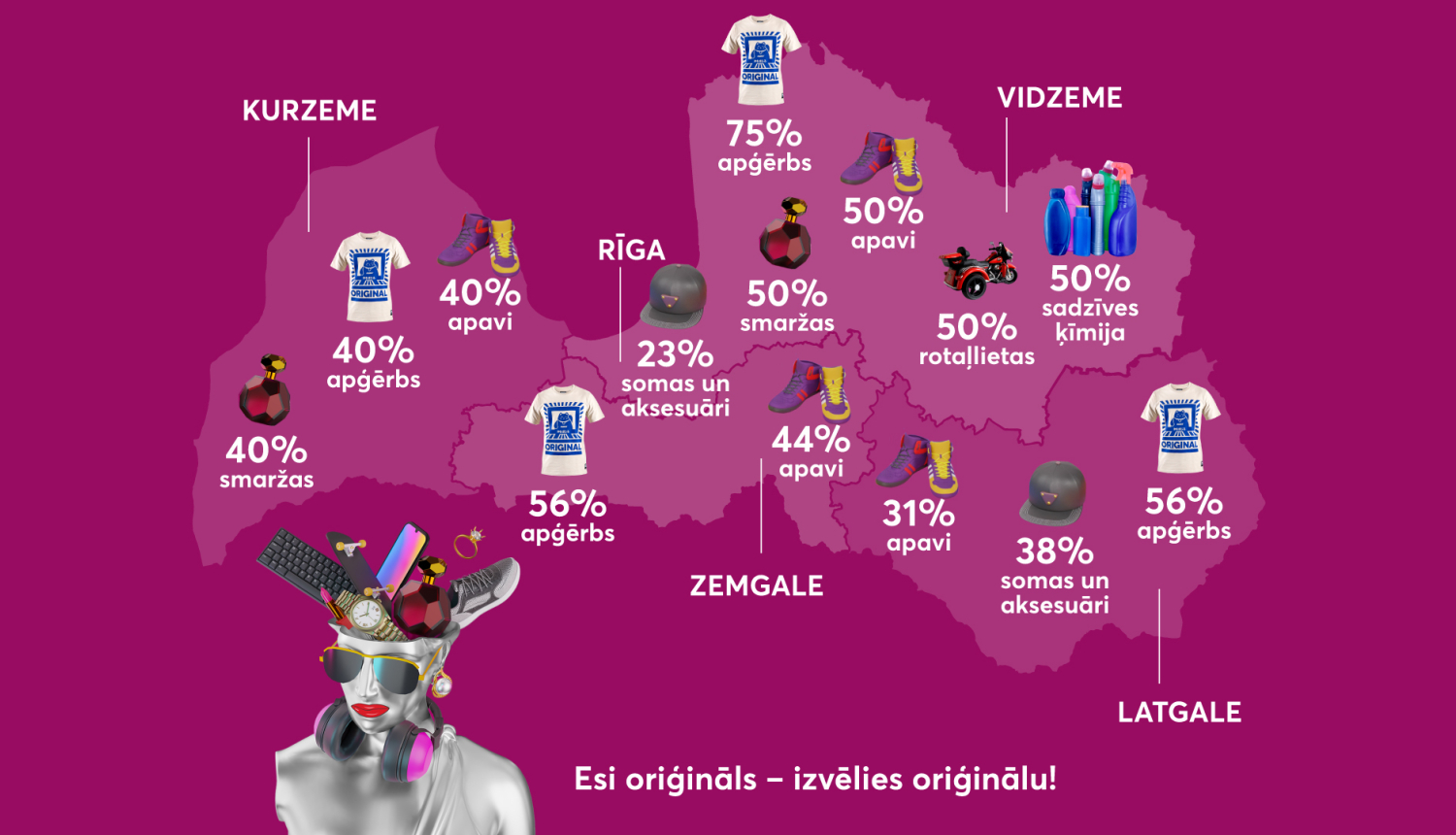There are different attitudes in the regions of Latvia towards buying counterfeit goods. At the same time, some similar trends in most preferred types of counterfeit goods can be observed in all the regions. According to a survey conducted by the Patent Office, Latgale has the largest number of respondents who have knowingly bought counterfeit goods over the past year (12%), as compared to Vidzeme with only 4% of the respondents.
The survey conducted in June during the "Be original - choose the original!" campaign found that over the last year, 8% of respondents in Riga and Kurzeme had intentionally purchased counterfeit goods, while in Pieriga and Zemgale the proportion had been 7%.
Alongside with conducting the survey, the offerings of fake goods on social media platforms were investigated. It was found out that counterfeit items are widely advertised both in general and regional advertisement sections. Moreover, most of the goods are indicated as "qualitative copies" or "identical to the original products". None of the contacted individual sellers admitted that the product was a fake, but rather "a qualitative reproduction", or even an original, as guaranteed by the attached label. In some cases when an attempt was made to find out more about the product, the seller just ended the conversation.
"The vast range of counterfeit items available on social media platforms and the sellers’ communication with consumers make us believe that most of them are not aware that they are breaking the law and are liable to punishment. Even more confusing is the attitude of the owners of individual advertisement portals, allowing sellers to deliberately mislead buyers, saying that the item is “a replica”, whereas in fact it is a fake. That is why we need not only to continue to educate on how to recognize fakes, but also work with law enforcement authorities to reduce the spread of such products, explaining the consequences of selling them," says Director of the Patent Office Agris Batalauskis.
During the survey, respondents were also asked to name counterfeit goods most frequently bought during the previous year. In all regions, more than half of the respondents named clothing. This answer was given significantly more often by women (59%) as opposed to men (39%). The second most popular answer was shoes, cited by 30% of respondents, while bags and accessories came in third at 29%. Analysing the data by region it can be concluded that Vidzeme residents (75% of the respondents) tended to buy fake clothes, while 50% of the surveyed admitted that they also had bought fake toys, shoes, perfumes, and household chemicals. In Latgale, 56% reported that they had bought clothes, and 38% - bags and accessories. In Kurzeme, respondents tended to buy clothes, shoes, and perfumes (40%); in Zemgale, this proportion reached 56%, while 44% reported to having bought shoes, bags, and accessories. In Riga and Pieriga, clothing was the most popular item (42% and 57% of the surveyed, respectively).
"Over the past few years, it has been consistently popular to buy fake clothes, toys, shoes, cosmetics, and perfumes. However, it should be remembered that the production of these goods often takes place in unsanitary conditions, and the raw materials tend to be dangerous to human health and the surrounding environment. When buying high-quality and responsibly produced goods, we will probably pay more for them, but in the long term, we will protect our health and nature," explains Agris Batalauskis.
The population survey was commissioned by the Patent Office and conducted by the market research company "Norstat" in June 2023, having surveyed more than 1,000 people aged 18 to 74.



